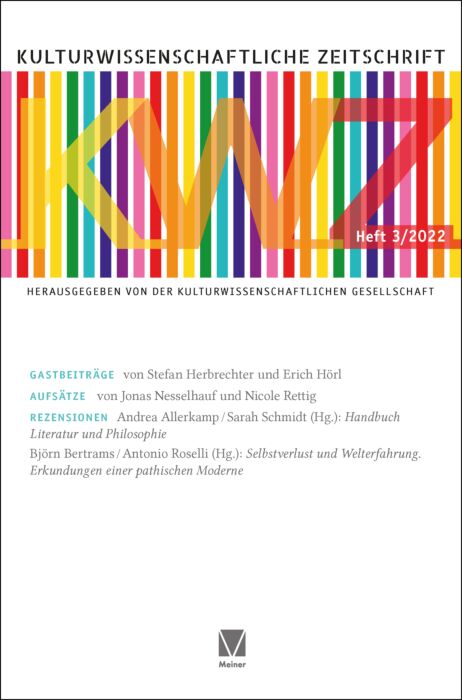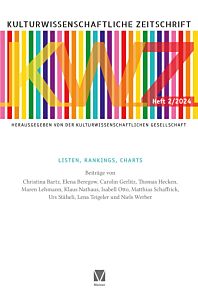Kulturwissenschaftliche Zeitschrift

Description
Bibliographic information
| Cover | |
|---|---|
| DOI | |
| Edition | |
| ISBN | |
| Language | |
| Original Name | |
| Pages | 116 |
| Copyright Year | 2023 |
| Series | Kulturwissenschaftliche Zeitschrift |
| Editor | Kulturwissenschaftliche Gesellschaft |
| Contributions by | Stefan Herbrechter Erich Hörl Jonas Nesselhauf Massimo Palma Melanie Reichert Nicole Rettig |
| Producer under GPSR |
Felix Meiner Verlag GmbH |
Service
Individual articles as PDF
Open Access under CC-BY-SA 4.0 Lizenz
Open Access under CC-BY-SA 4.0 Lizenz
Open Access under CC-BY-SA 4.0 Lizenz
Open Access under CC-BY-SA 4.0 Lizenz
Open Access under CC-BY-SA 4.0 Lizenz







